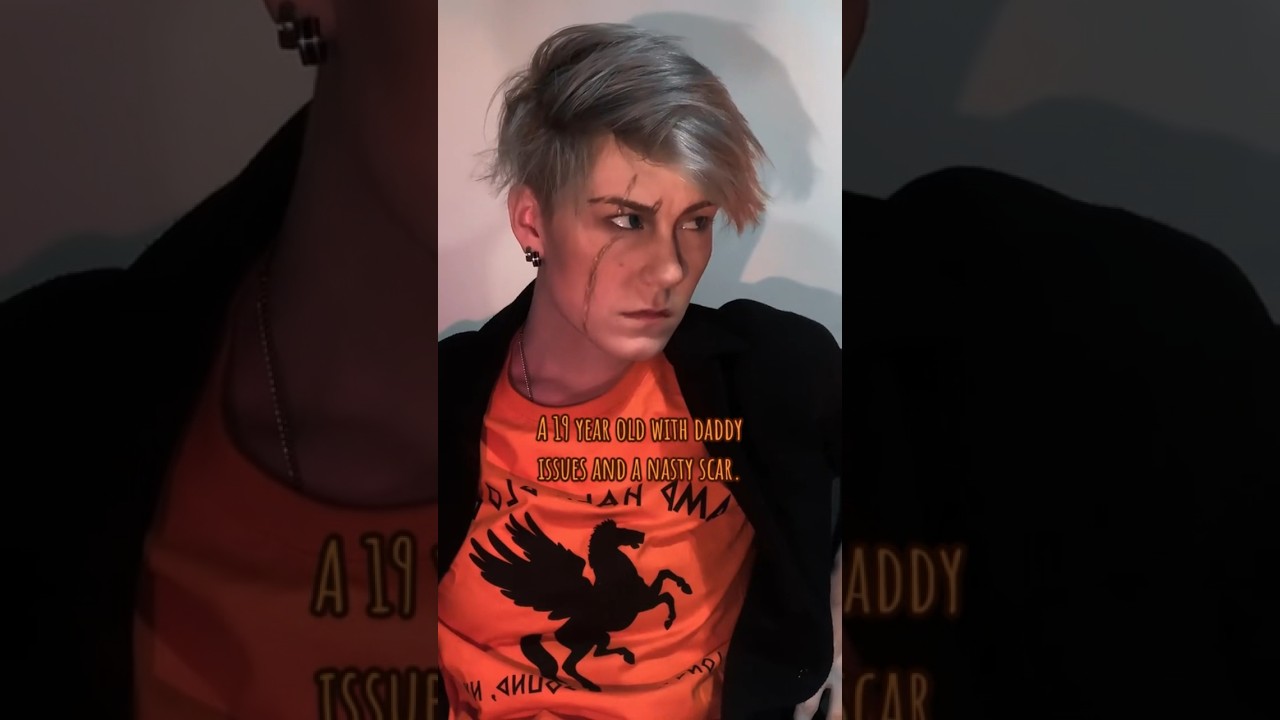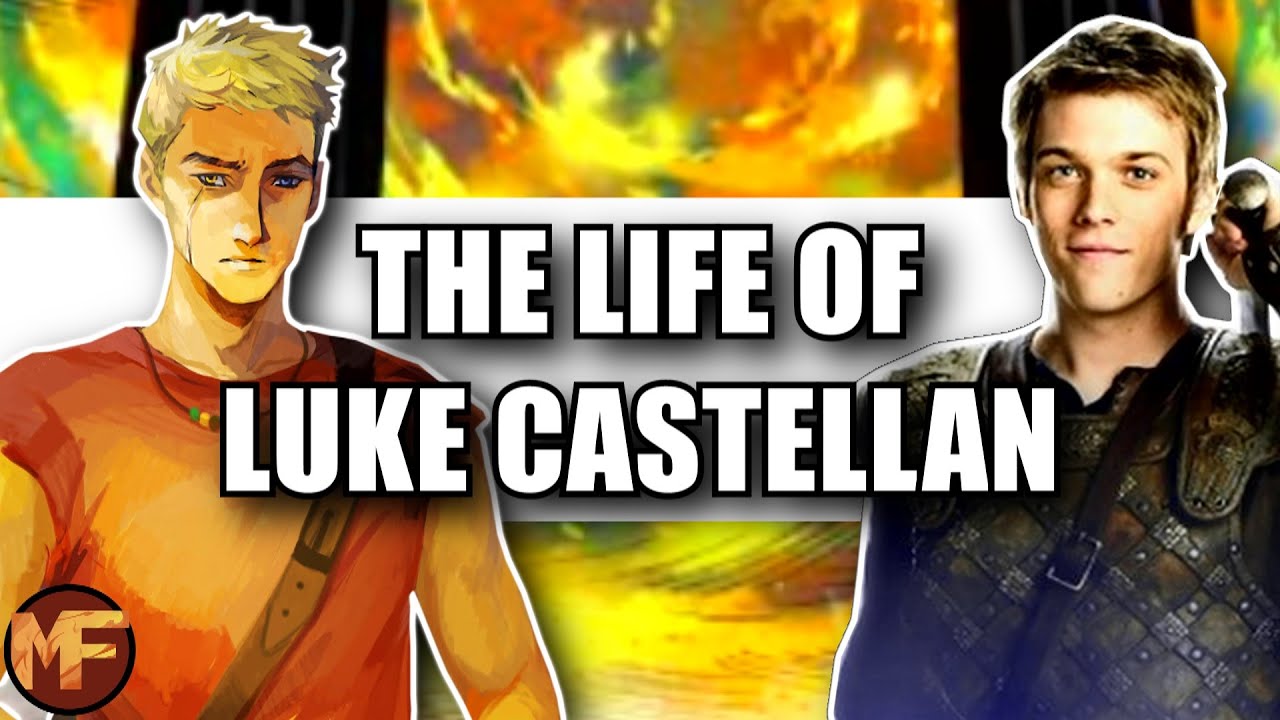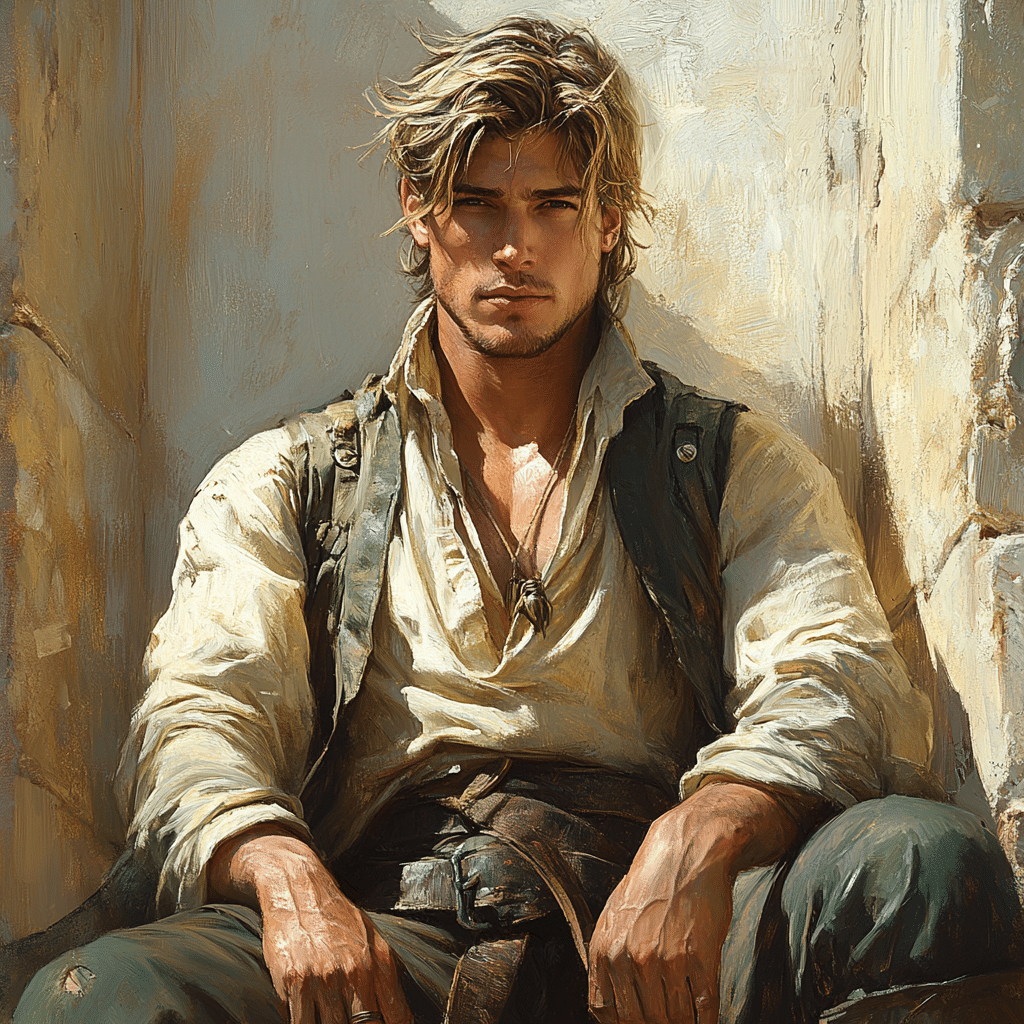
1. The Beginnings of Luke Castellan: A Demigod’s Origin Story
Luke Castellan emerges as one of the most complex characters in Rick Riordan’s “Percy Jackson & The Olympians” series. Born the son of Hermes, the Greek god of travelers and thieves, Luke’s journey is infused with rich themes of loyalty, betrayal, and the struggle for identity. His backstory shapes his motivations, revealing the internal conflicts that define his character.
As a demigod, Luke possesses remarkable abilities linked to his heritage, including enhanced speed and agility. These powers come in handy when he navigates the challenges of Camp Half-Blood, where every demigod strives to find their footing. However, Luke’s initial sense of belonging quickly fades as he confronts the harsh realities of his lineage and the expectations that come with it. This transition frames his character arc and sets a powerful stage for his motivations throughout the series.
Ultimately, Luke’s origin story fans the flames of his inner turmoil. With a father who often neglects him, the demigod grapples with feelings of abandonment and seeks validation in an unforgiving world. It’s the struggles he faces that transform him from a hopeful hero into a character struggling against powerful forces—within and without.

2. Top 7 Defining Moments of Luke Castellan’s Journey
Early revelations about Luke being a demigod set the stage for his character arc. His disdain for the gods stems from his turbulent relationship with them, particularly his father Hermes. This tension marks his journey, laying the groundwork for deeper conflicts.
Luke’s transition from hero to antagonist crystallizes during “The Lightning Thief.” His involvement in the plot to steal Zeus’s lightning spear introduces themes of allegiance and power. This shift embodies both his rebellious spirit and inner turmoil.
Choosing to ally with the Titan Kronos highlights the allure of rebellion against the Olympian gods. This pivotal moment marks his plunge into darkness, revealing the complexities behind his choices and hinting at his struggles for acceptance and power.
In “The Last Olympian,” Luke finds himself at a critical crossroads. His actions have severe consequences, and the struggle to balance ambition with the desire for redemption explores modern storytelling’s nature of heroism. How far will he go for a chance at forgiveness?
Luke’s ultimate sacrifice at the series’ climax is both tragic and heroic. He relinquishes power for the sake of his friends, raising profound questions about the nature of heroism and personal redemption. His final actions resonate deeply with the themes of loyalty peppered throughout his arc.
Following Luke’s demise, the story tackles questions of legacy and memory. How does his story shape the lives of those around him? His relationships with characters like Percy and Annabeth reflect the lasting impact a demigod can make, even in death.
Luke Castellan’s character has seen various interpretations in popular culture, showcasing the shift in narrative dynamics surrounding villains and anti-heroes. He resonates with today’s audience, grappling with issues of belonging and ethical ambiguity, particularly relevant in contemporary storytelling.
3. The Complex Nature of Loyalty in Luke Castellan’s Character Arc
Loyalty serves as a vital theme in Luke Castellan’s journey. Initially, his commitment to his friends at Camp Half-Blood remains unwavering. As the series progresses, his eventual betrayal of those same principles creates a powerful portrait of transformation. How can someone once seen as a hero become an antagonist?
Comparing Luke’s arc with other literary figures could prove interesting. For instance, Severus Snape from the “Harry Potter” series also treads the fine line between allegiance and betrayal. Both characters exhibit stark complexity; each reflects the human struggle against internal and external pressures, demonstrating that loyalty can often morph into paradoxical motivations.
Luke’s journey compels readers to reconsider preconceived notions about loyalty. The shifting nature of his allegiances sparks conversations on trust, betrayal, and forgiveness. This exploration transforms him into a nuanced character, reflecting our own experiences of loyalty in the face of adversity.
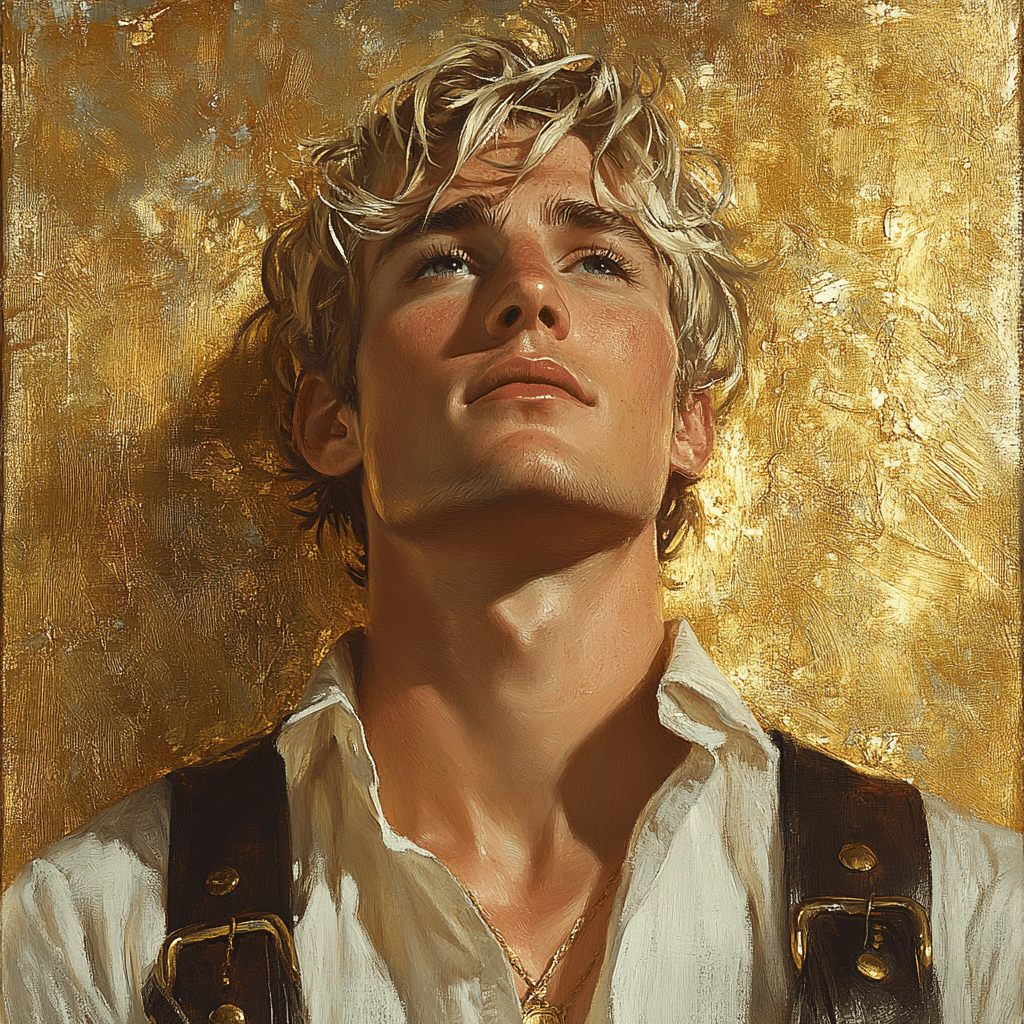
4. The Evolution of the Anti-Hero in Young Adult Fiction
Luke Castellan stands as a representation of the evolving anti-hero in young adult fiction. Traditional heroes tend to embody clear-cut morality, while Luke’s character challenges this notion. His journey to self-discovery and personal ambition offers readers a refreshing perspective, paving the way for complex narratives that blur the lines between good and evil.
As the modern narrative landscape shifts, anti-heroes like Luke emerge as relatable figures, prompting readers to delve into shades of gray rather than rigid dichotomies. It begs the question: why are we drawn to these flawed characters? Their imperfections mirror our own lives, inspiring readers to grapple with similar dilemmas of choice, consequence, and identity.
Through Luke’s character, we see a reflection of our struggles in the quest for understanding. Ultimately, this evolution heightens the richness of storytelling in young adult literature, encouraging readers to embrace the multifaceted nature of heroism.
5. Fan Interpretations and Theoretical Frameworks
Luke Castellan’s character resonates deeply with fans, leading to vivid interpretations and discussions. Various theoretical frameworks apply to his arc, such as Freudian analysis, which critiques his desire for paternal approval. Fans often debate his dynamics with key female characters, touching on themes of agency and regret.
Online discussions format an illuminating exploration of Luke’s character; his motivations reflect the tumultuous experiences of contemporary youth. As fans share their perspectives, it becomes clear that Luke’s struggles evoke powerful reactions, aiding readers in their quests for identity and belonging.
By examining these discussions, we see how Luke’s character interacts with broader themes in literature. The interpretations invite readers to confront uncomfortable truths about themselves, enriching the series and allowing for deeper understanding of the human experience.
6. Legacy of Luke Castellan in the Broader Mythological Context
Luke Castellan’s legacy ties seamlessly into the broader context of mythology. How does his character resonate with ancient figures? Comparisons arise between Luke and mythological characters like Prometheus and Icarus, each sharing themes of ambition, rebellion, and the quest for identity.
Much like Prometheus, Luke seeks to reclaim power, challenging the gods that so often disregard him. His choices echo Icarus’s fate, with retribution looming ominously as he grasps for autonomy. By aligning Luke with these iconic figures, readers can grasp his narrative within a familiar mythological framework.
This exploration unveils enduring human themes, revealing that the struggles for identity and belonging are as relevant today as they were in ancient times. Ultimately, Luke Castellan represents the intersection of myth and modern storytelling, a reminder that the pursuit of self-knowledge knows no temporal bounds.
A Hero’s Journey and Its Resonance
Luke Castellan’s narrative arc serves as a poignant reminder of the enduring struggle between light and darkness within us all. He embodies the complexities and contradictions that define human existence, making his journey not just a tale of a demigod but a reflection of our own challenges and choices.
As we move into 2024, characters like Luke underline the evolving storytelling landscape in young adult literature. They urge readers to embrace the multifaceted nature of heroism and the stories that shape our understanding of self. Whether celebrated as a hero or scrutinized as an anti-hero, Luke Castellan remains a quintessential figure, beckoning us to explore the depths of loyalty, redemption, and identity in storytelling.
Luke Castellan: The Compelling Journey of a Demigod Hero
The Legacy of Luke Castellan
Luke Castellan isn’t just a demigod; he’s a character that embodies some intriguing elements of storytelling. From his birth as the son of Hermes, the god of travelers and thieves, Luke’s journey showcases the trials and tribulations faced by many. Interestingly enough, you might think of him as a metaphor for many real-life heroes striving for greatness. Did you know that there are accomplished keynote speakers who have drawn inspiration from narratives like Luke’s to motivate others? These speakers often echo themes of resilience, forging their paths much like Luke does.
As Luke traverses his narrative, relationships with other characters become pivotal. His camaraderie with characters like Annabeth and Percy adds layers that make the storytelling richer, almost like a film director crafting characters with diverse backgrounds to produce a compelling drama. It’s reminiscent of how Gigi Rice, a talented actress, contributes to her roles by bringing to life complex relationships that resonate with audiences. The tension created by Luke’s choices often leads fans to reflect on real-life scenarios, whether it’s young people grappling with their identities or their ambitions, much like Cassie Jo Stoddart‘s story brought forth a poignant reminder of youth’s fragility.
The Duality of Heroism
Luke’s battle between good and evil reflects a classic trope that many can relate to, capturing the essence of what it means to be human. The struggle between loyalty to family and the greater good resonates with fans, sparking debates akin to the allure of viral hatred memes—which often turn discussions on their heads. It’s fascinating how Luke’s internal conflicts mirror the complexities of navigating personal ethics; it keeps us on our toes, wondering where his true loyalties lie.
Moreover, let’s take a quick detour into sports! Just like Graham Gano, a punter known for his resilience and ability to rise in high-pressure moments, Luke demonstrates that even in the face of adversity, one can stand tall. This same theme bubbles up throughout various narratives as characters like Luke face obstacles but keep pushing forward. After all, flipping to another side of loyalty, you might remember how Detlef Schrempf persevered in his own journey to become a legend in basketball—a true testament to standing your ground when the chips are down.
The Impact of Luke Castellan
Ultimately, Luke Castellan’s story has resonated well beyond mere entertainment. His experiences offer a springboard for conversations about morality, sacrifice, and the quest for identity, captivating audiences everywhere. It’s worth mentioning that creative narratives often spur interests in all walks of life, including the realm of finance, where plenty seek tools like max your mortgage software for essential financial decisions, paralleling how Luke makes decisions that impact not just him, but those around him.
In the end, Luke is a compelling demigod hero who bridges the gap between fantasy and reality, allowing fans to see bits of themselves within his journey. Now, his tale doesn’t just end on the page; it continues in discussions that keep us thinking. So whether you’re cheering for him in battles or pondering the deeper meanings behind his decisions, Luke Castellan remains a character you can’t forget.
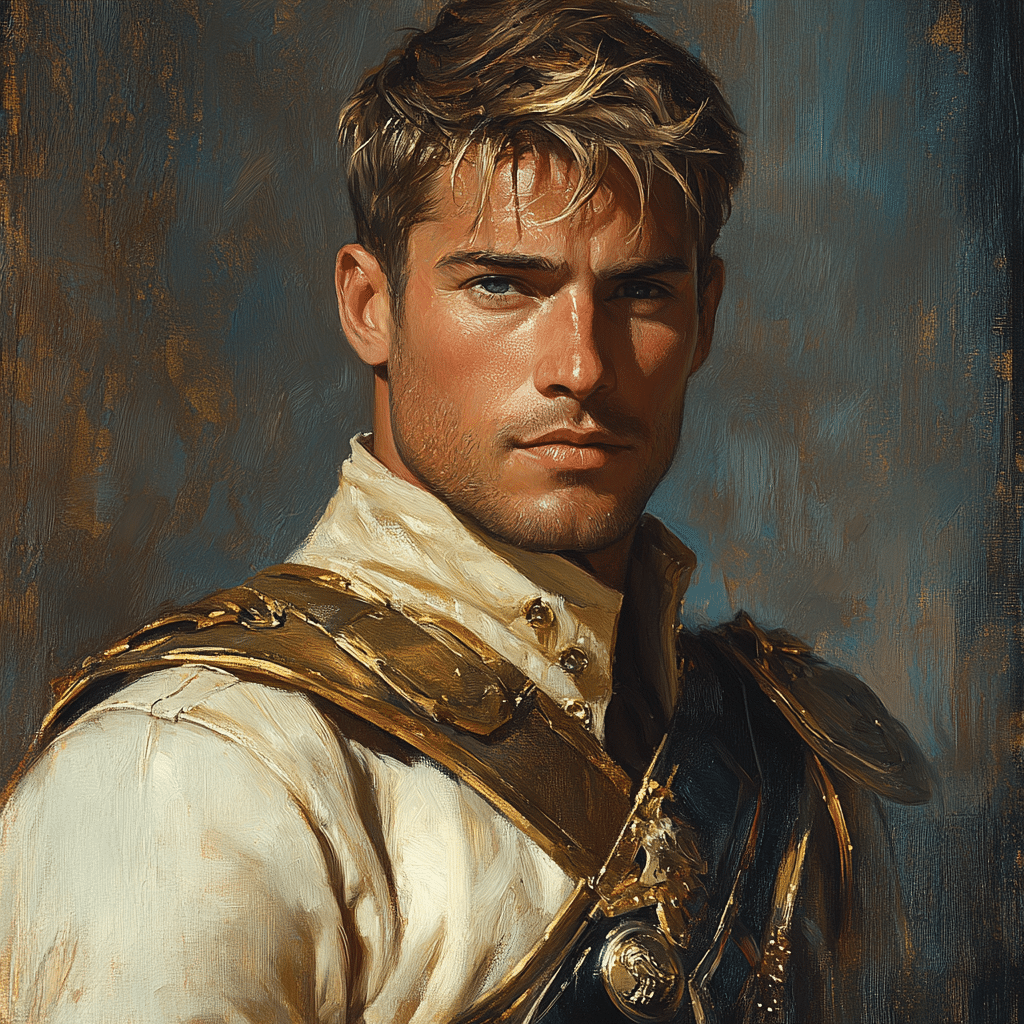
Does Luke Castellan have a love interest?
Luke Castellan had a hinted romantic relationship with Thalia Grace before her sacrifice at Half-Blood Hill, but it fell apart after he poisoned her protective tree.
What were Luke Castellan’s last words?
His last words were a plea to remember the unclaimed demigods, showing his remorse and concern for them just before he faced his end.
Why did Luke Castellan turn bad?
Luke turned bad due to various reasons, including feeling abandoned by his father Hermes and believing that the gods betrayed their children, which drove him to join Kronos’s cause.
What happened to Luke Castellan after he died?
After he died, Luke was carried away by the Fates and was blessed by Hermes, being remembered as a hero by Percy, Annabeth, Grover, and the others despite his fall.
Does Annabeth love Percy or Luke?
Annabeth has a complex relationship with both Percy and Luke, but her love for Percy is stronger, especially as the series progresses.
Who kills Luke Castellan?
Luke was ultimately killed during the battle against Kronos, where he sacrificed himself to defeat the titan, marking a tragic twist in his story.
What is Luke Castellan’s tragic flaw?
Luke’s tragic flaw was his deep-seated feeling of abandonment, which led him to make poor decisions and ultimately betray his friends.
What crimes did Luke Castellan commit?
He committed several serious crimes, including betrayal of his friends, allied with Kronos, and harming Thalia’s tree, which endangered all demigods.
Why did Luke Castellan sacrifice himself?
Luke sacrificed himself to end Kronos’s threat, realizing it was the only way to save his friends and uphold his redemption arc.
Does Luke actually like Percy?
Luke had a complicated relationship with Percy; while he didn’t necessarily like him, he respected him as a fellow demigod and at times saw him as an ally.
Is Luke Castellan a good guy?
Luke is often seen as a tragic figure rather than a straightforward good guy; he started with a good heart but was led astray by his experiences and choices.
Why does Luke Castellan hate Hermes?
He harbored resentment towards Hermes due to feeling neglected and abandoned by his father, which fueled his anger and sense of betrayal.
What is Percy’s fatal flaw?
Percy’s fatal flaw is his loyalty, which sometimes clouds his judgment and leads him into danger for the sake of his friends.
Did Grover find Pan?
Grover did eventually find Pan, the nature god, after a long and difficult quest, which brought closure to his character arc.
Does Luke ever forgive Hermes?
There’s no clear indication that Luke ever fully forgave Hermes; their relationship remained strained, rooted in feelings of neglect and abandonment.





